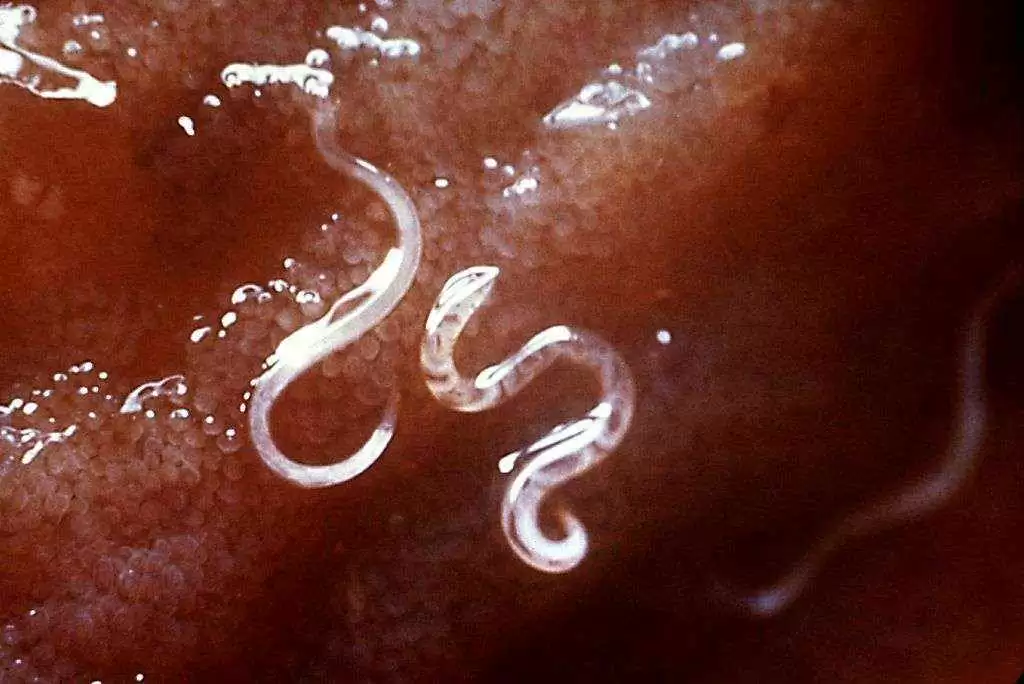
Celiac.com 06/29/2021 - A scientist has been awarded nearly $2 million to study how venom from parasitic worms, called nematodes, allows them to live undetected in our bodies. He hopes it can lead to new treatments for celiac, and other inflammatory diseases.
The fact is that nearly one in four people on earth is infected with parasitic worms called nematodes. According to Wikipedia, nematodes that commonly parasitize humans include ascarids (Ascaris), filarias, hookworms, pinworms (Enterobius), and whipworms (Trichuris trichiura). These tiny worms work their way into our bodies quietly, but some types of these nematode can cause blindness or death.
Celiac.com Sponsor (A12):
One thing all nematodes have in common is the ability to fool our body into thinking they aren't even there. By releasing a venom that cloaks their presence, nematodes avoid detection by the human body, and then propagate. The venom also suppresses inflammation that would otherwise make the worms' presence known to the body.
We've written more than one article on the promise of hookworms and, hookworm venom, in treating inflammatory diseases, like celiac disease.
Some of those articles include:
- Could Hookworm Infections Help Cure Celiac Disease?
- Celiac Patients Tolerate Wheat Spaghetti After Hookworm Treatment
- Have Celiac Disease? Try a Little Hookworm with that Pasta!
- Are Intestinal Worms the Future of Autoimmune Disease Treatment?
The subject has also been a popular topic on Celiac.com's gluten-free forums.
Because nematodes, including hookworms, are so good at masking their presence, they are often detected only when doctors begin to address some outward symptom caused by their unchecked propagation. Many researchers think that venom from nematodes could help to develop drugs to treat numerous anti-inflammatory conditions.
So promising is the idea that the National Institute of Health (NIH) recently awarded parasitologist Adler Dillman $1.8 million to figure out how these worms use their venom to remain undetected in our bodies. Dillman hopes the research could one day help treat autoimmune disorders, including celiac disease.
Stay tune for more on exciting, cutting edge developments for celiac disease.
Read more at Business Insider




.webp.052ba8c166489209c49990837d6b17e2.webp)



Recommended Comments
There are no comments to display.
Create an account or sign in to comment
You need to be a member in order to leave a comment
Create an account
Sign up for a new account in our community. It's easy!
Register a new accountSign in
Already have an account? Sign in here.
Sign In Now